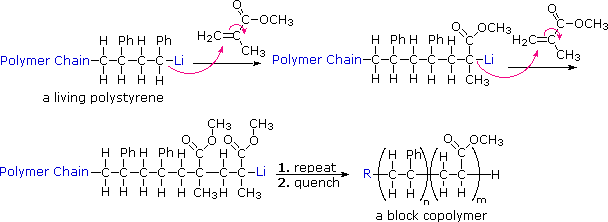Harnessing the Power of Polymers: Recognizing the Comprehensive Uses and Favorable Influences
Polymers, with their diverse chemical frameworks and properties, have become essential in many industries, reinventing the method we interact with products on an everyday basis. As we check out the considerable uses of polymers and their duty in shaping a more lasting, efficient, and innovative future, it becomes noticeable that their capacity is as substantial as the particles themselves.
Adaptability in Everyday Products
Polymers show amazing versatility in a large selection of daily items, demonstrating their indispensable function in contemporary society. From the adaptable plastic housing of smartphones to the resilient fibers in garments, polymers have actually changed the means we engage with items in our lives. One of one of the most common usages of polymers is in product packaging materials. Polyethylene, for instance, is extensively used in food packaging due to its lightweight, durable, and moisture-resistant buildings. Furthermore, polymers play a critical role in the vehicle market, where they are used in manufacturing lightweight components that enhance gas performance.
Eco-friendly polymers are made use of in sutures and implants, lowering the danger of damaging reactions in individuals. In the construction market, polymers are incorporated into paints, adhesives, and insulation products, enhancing toughness and energy effectiveness.
Sustainability in Product Innovations
With the recurring emphasis on ecological consciousness and source performance, the emphasis shifts towards sustainability in material innovations, showing a growing commitment to accountable manufacturing methods across different industries. In recent times, there has actually been a notable rise in the growth of lasting products, specifically within the realm of polymers. These cutting-edge materials are designed to reduce ecological effect throughout their entire lifecycle-- from sourcing basic materials to disposal or recycling.
One considerable element of sustainability in product technologies is the concept of biodegradability. Biodegradable polymers have gathered attention for their ability to damage down normally right into non-toxic by-products, reducing waste and air pollution. In addition, using recycled polymers stemmed from post-consumer or post-industrial sources is obtaining traction as a means of promoting a circular economy and decreasing dependency on virgin products.

Enhancing Efficiency in Engineering
Enhancing efficiency in design requires a thorough integration of sophisticated technologies and accurate methodologies to enhance performance and efficiency in various commercial applications. Polymers play a crucial function in this endeavor, providing a vast array of benefits that boost the performance of design materials and components.
One key element of improving performance in engineering is the capacity of polymers to improve resilience and toughness. By incorporating Visit This Link polymers into engineering layouts, makers can create lightweight yet robust frameworks that can stand up to high levels of stress and anxiety and stress. This characteristic is particularly useful in markets such as aerospace, automotive, and building, where the demand for solid yet light-weight products is vital.
Furthermore, polymers can additionally enhance efficiency by providing thermal and chemical resistance, lowering friction, and boosting electric conductivity. These homes make polymers perfect for a vast array of engineering applications, including seals, bearings, coatings, and digital components. Polymers. By utilizing the special homes of polymers, engineers can enhance the efficiency of their styles and produce much more reliable and dependable items
Effect On Medical Advancements
Polymers have played a crucial duty in modern-day clinical innovations, varying from medication shipment systems to Check This Out tissue design. One of the crucial areas where polymers have actually made a considerable impact is in the development of biodegradable sutures and implants.
Moreover, polymer-based products are increasingly being utilized in medical tools such as catheters, stents, and prosthetics as a result of their biocompatibility and adaptability. As an example, polymer finishings on clinical gadgets can stop infections and boost overall client results. In addition, innovations in nanomedicine have actually allowed the use of polymer nanoparticles for targeted medicine delivery, boosting the efficacy and lowering negative effects of various drugs
Duty in Environmental Conservation
:max_bytes(150000):strip_icc()/three-dimensional-model-of-polyvinyl-chloride-165874889-5c425ea7c9e77c000188be6d.jpg)
In addition, polymers are used in water therapy procedures, helping in the filtration and recycling of water sources. This aids in decreasing water air pollution and making certain access to tidy water for both human usage and ecological health. Polymers also play a role in agriculture via the advancement of biodegradable composts and controlled-release plant foods, advertising lasting farming techniques.
Final Thought
In final thought, polymers have actually shown to be a functional and vital material in different markets, from everyday products to engineering and clinical improvements. Recognizing the considerable uses of polymers highlights their value in driving advancement and progression in numerous fields.